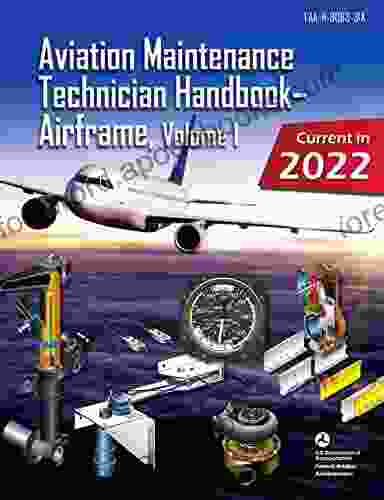Reforming Civil Military Relations in Democratic Latin America

Civil-military relations (CMR) play a crucial role in consolidating and sustaining democratic governance. In Latin America, where military intervention in politics was historically prevalent, the establishment and maintenance of democratic CMR have been central to the region's political development.
The book "Reforming Civil-Military Relations in Democratic Latin America" provides a comprehensive analysis of the challenges, dynamics, and lessons learned in reforming CMR in the region. This article explores the key insights and recommendations presented in the book, offering a valuable guide for practitioners, scholars, and policymakers.
4.5 out of 5
| Language | : | English |
| File size | : | 3780 KB |
| Text-to-Speech | : | Enabled |
| Screen Reader | : | Supported |
| Enhanced typesetting | : | Enabled |
| Word Wise | : | Enabled |
| Print length | : | 400 pages |
Historical Context and Challenges
Latin America's history is marked by a complex relationship between the military and civilian authorities. From military coups to protracted military dictatorships, the military often played a dominant role in shaping political outcomes. This legacy left a profound impact on the region's democratic transition.
The transition to democratic rule presented significant challenges in terms of:
- Establishing civilian control over the military
- Redefining the military's role in society
- Promoting transparency and accountability within the security sector
li>Addressing human rights abuses and impunity
Key Reforms and Best Practices
The book examines a wide range of reforms implemented in Latin American countries to address these challenges. These reforms include:
- Constitutional changes to limit military autonomy and reinforce civilian authority
- Creation of civilian-led defense ministries and national security councils
- Professionalization of the military and law enforcement agencies
- Establishment of mechanisms for parliamentary oversight and public scrutiny
- Promotion of civil-society participation in security policy
The book highlights the importance of tailored approaches to CMR reform, taking into account the specific historical, cultural, and institutional contexts of each country. However, it also identifies common best practices, including:
- Clear legal frameworks that define military responsibilities and civilian oversight
- Transparent and accountable defense budgets
- Mechanisms for civilian control over military promotions and appointments
- Strong civil-society organizations that monitor and advocate for democratic CMR
Democratic Consolidation and Regional Cooperation
The book argues that reforming CMR is essential for the long-term consolidation of democratic governance in Latin America. It highlights the positive correlation between democratic CMR and indicators of democratic stability, economic growth, and human rights protection.
The book also emphasizes the importance of regional cooperation in promoting democratic CMR. It examines the role of regional organizations, such as the Organization of American States (OAS) and the Union of South American Nations (UNASUR),in fostering democratic principles and supporting CMR reform initiatives.
"Reforming Civil-Military Relations in Democratic Latin America" offers a valuable resource for anyone interested in understanding and promoting democratic governance in the region. It provides a comprehensive overview of the challenges, best practices, and lessons learned in reforming CMR, highlighting the importance of tailored approaches, regional cooperation, and the consolidation of democratic principles.
By empowering readers with a comprehensive knowledge of CMR dynamics in Latin America, the book empowers practitioners, policymakers, and researchers to contribute to the ongoing efforts of building and strengthening democratic institutions.
4.5 out of 5
| Language | : | English |
| File size | : | 3780 KB |
| Text-to-Speech | : | Enabled |
| Screen Reader | : | Supported |
| Enhanced typesetting | : | Enabled |
| Word Wise | : | Enabled |
| Print length | : | 400 pages |
Do you want to contribute by writing guest posts on this blog?
Please contact us and send us a resume of previous articles that you have written.
 Book
Book Novel
Novel Page
Page Chapter
Chapter Text
Text Story
Story Genre
Genre Reader
Reader Library
Library Paperback
Paperback E-book
E-book Magazine
Magazine Newspaper
Newspaper Paragraph
Paragraph Sentence
Sentence Bookmark
Bookmark Shelf
Shelf Glossary
Glossary Bibliography
Bibliography Foreword
Foreword Preface
Preface Synopsis
Synopsis Annotation
Annotation Footnote
Footnote Manuscript
Manuscript Scroll
Scroll Codex
Codex Tome
Tome Bestseller
Bestseller Classics
Classics Library card
Library card Narrative
Narrative Biography
Biography Autobiography
Autobiography Memoir
Memoir Reference
Reference Encyclopedia
Encyclopedia Debbie Cassidy
Debbie Cassidy David Doran
David Doran Peggy Kahn
Peggy Kahn Noriko Carroll
Noriko Carroll Yoshiki Nakamura
Yoshiki Nakamura Ravi Gopalan Nair
Ravi Gopalan Nair Tanya A Bailey
Tanya A Bailey James C Robinson
James C Robinson David J Ridges
David J Ridges David Cass
David Cass Walter Rodney
Walter Rodney David Kopp
David Kopp Fiona Maddocks
Fiona Maddocks Mark Zacharias
Mark Zacharias Victoria H Smith
Victoria H Smith David Norton Stone
David Norton Stone Derek Fridolfs
Derek Fridolfs David King
David King James Otis
James Otis Maeve Haran
Maeve Haran
Light bulbAdvertise smarter! Our strategic ad space ensures maximum exposure. Reserve your spot today!
 Thomas PowellFollow ·16.3k
Thomas PowellFollow ·16.3k Walter SimmonsFollow ·7.6k
Walter SimmonsFollow ·7.6k Dashawn HayesFollow ·12.3k
Dashawn HayesFollow ·12.3k Devon MitchellFollow ·2.4k
Devon MitchellFollow ·2.4k Nathan ReedFollow ·18.6k
Nathan ReedFollow ·18.6k Ezekiel CoxFollow ·13.7k
Ezekiel CoxFollow ·13.7k Tyrone PowellFollow ·9.7k
Tyrone PowellFollow ·9.7k Tennessee WilliamsFollow ·16.1k
Tennessee WilliamsFollow ·16.1k

 Douglas Powell
Douglas PowellEscape into a World of Sweet Love and Second Chances with...
Prepare yourself...

 Garrett Powell
Garrett PowellMaster Badminton: A Comprehensive Guide to the Thrilling...
Are you ready to step into the world of...

 Deacon Bell
Deacon BellTrailer Park Trickster: The Adam Binder Novels
Book 1: The...

 Oscar Bell
Oscar BellLeo: The Very Modern Taoiseach
Leo Varadkar's journey...
4.5 out of 5
| Language | : | English |
| File size | : | 3780 KB |
| Text-to-Speech | : | Enabled |
| Screen Reader | : | Supported |
| Enhanced typesetting | : | Enabled |
| Word Wise | : | Enabled |
| Print length | : | 400 pages |
















